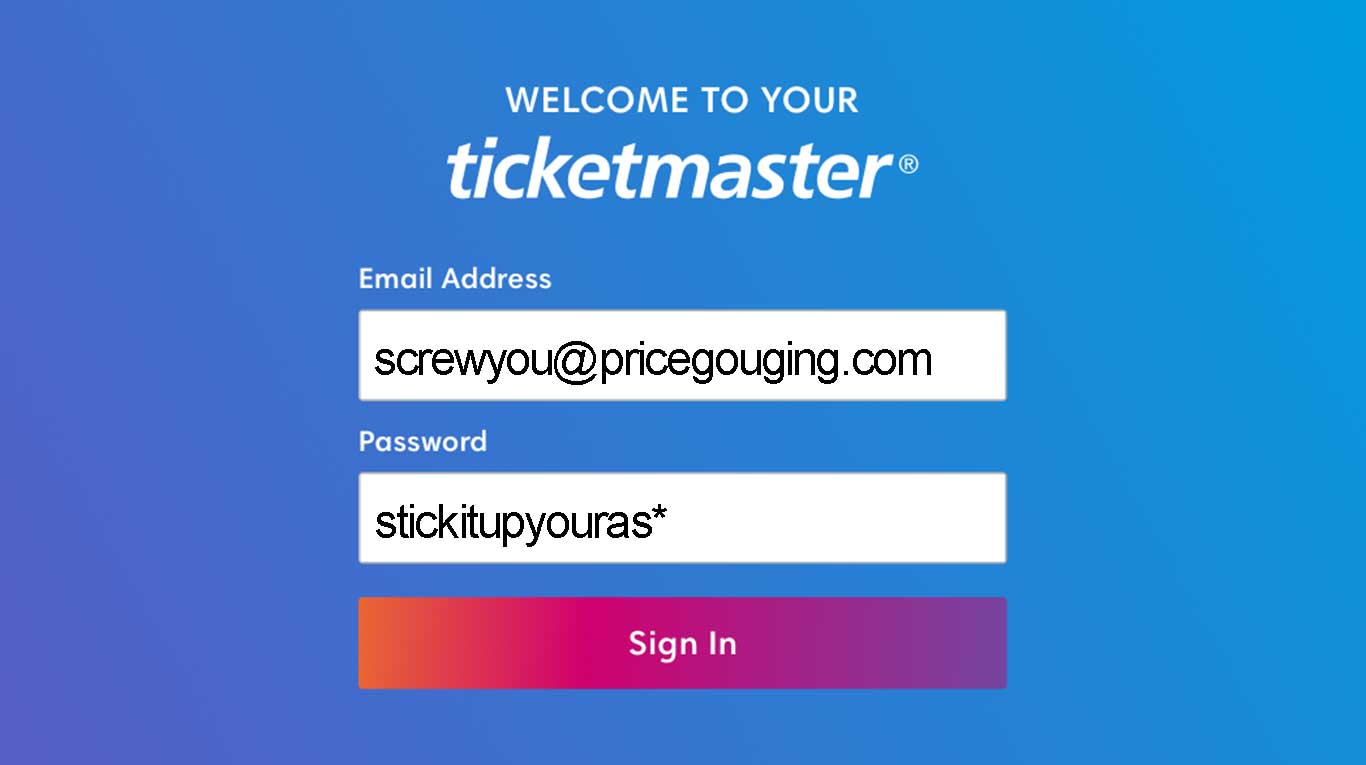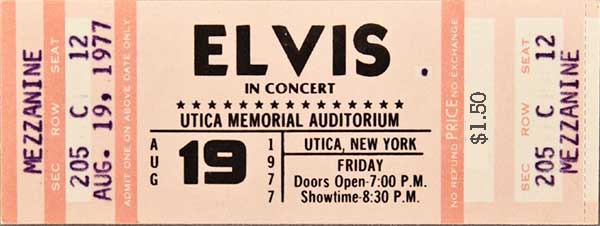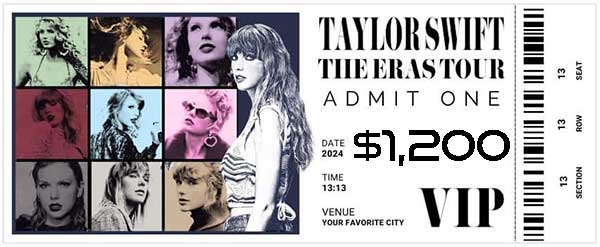
Why the F*ck are Ticket Prices so High?
Have you wondered why ticket prices are so high? How did it happen? It's no secret, it's thanks the monopoly of two less than moral companies - Live Nation and Ticket Master.
Small Venues
Small venues are having a tough time. A tough time that's getting tougher.
They are getting squeezed in unprecedented way. The average small venue operated about on 30% margins in 2019 but now it's decimated to 3% - and that means something has to give. Either the venue shuts down or we, the consumer, will have to pay more.
This was a exacerbated by a deliberate campaign by these two corporations to squeeze the small guy, and us, until the pips squeak and ruin the concert going experience into the bargain.

It's symptomatic of a much wider trend of price gouging nationwide. After Covid companies put up their prices citing supply chain problems but really they did it because they could. Corporate profits skyrocketed leading to eyewatering inflation that none of us could ignore. CEO's trousered huge bonuses.
The Music Pyramid
There's a hierarchy in live music both in the sizes of the venues and the popularity of the artists.
- At the base are the small independent venues where traditionally most artists cut their teeth and learn their craft. It should be obvious that without them organic music will wither on the vine.
- In the middle tier you have venues like the Pabst theater in Milwaukee, Wisconsin.
- At the very top you have Arenas mostly owned by giant corporations like Live Nation. The artists that can fill the stadiums are the likes of Drake, Taylor Swift, and Beyonce.
Today, only that top tier, which charges us thousands of dollars for tickets, is able to sustain itself - but it didn't used to be this way. At one point not so long ago this top tier didn't even exist. The venues used to be a lot smaller, even for the biggest artists in the world, and the tickets were way cheaper too.
1956

Let's time travel to the 50's, when Rock and Roll took off. Imagine teenagers in Miami lining up outside the Olympus theater all day to see Elvis Presley the king of rock and roll.
It's the hottest ticket in town and it costs only $1.50c
Adjusted for inflation in today's money you could buy a Taylor Swift ticket for $20 !!!!!
Back in the 50's and 60's musicians expected to lose money on live shows because the tour was just marketing for their records. That's where the real money was and shows were short, usually less than 30 minutes, and they were small often too small to cope with demand. Tens of thousands of people came out that weekend in Miami to see Elvis but the theater could only fit about 2,000 so he ended up playing 7 shows over the course of 3 days.
The Beatles

During the British Invasion, at the height of Beatlemania, local law enforcement were tearing their hair out because thousands of fans, who couldn't get tickets, were causing mayhem outside the gigs.
The Beatles changed live music forever with a record-breaking show at New York's Shea Stadium. For the first time 55,000 fans at a single Show screaming so loud The Beatles couldn't hear themselves play but it didn't matter. The show grossed $300,000 or about $3 million today and the band pocketed most of that.
Stadium Rock
Stadium Rock was officially born and, in the years to come it would only become more successful thanks to... basketball.
In the 60s the NBA and NHL were massively expanding their league sizes which led to a new crop of huge indoor stadiums most notably Madison Square Garden in New York and the Forum in LA. They could fit up to 20,000 people rain or shine, had better acoustics than the bigger outdoor stadiums and they needed more events to fill the nights when there were no games.
Up until that point a big artist might make up to $100K after playing a week's worth of shows at a midsize theater but with these stadium and Arena shows they could make that much in just one night without raising the ticket price.
The most expensive ticket for that iconic Beatle show was $5.75c or $56 today and it stayed like this for decades
What changed?

So, stadium rock was not to blame - but something sent prices skyrocketing in the 2000's.
Before the 90's tickets used to be sold through call centers at stores or at box offices.
There were multiple different ticketing agencies, and they made their money by charging venues a fee for handling all the technology and Logistics of selling tickets.
But Ticket Master inverted that. Instead of charging venues they started making money by charging fans the infamous service fee.
This incentivized venues to sign exclusive contracts with Ticket Master over other companies. Ticket Master also gobbled up the competition acquiring seven other ticketing agencies between 1985 and 1991 including their main rival Ticketron.
With no competition, guess what? Ticket Master raised service fees
Government Regulators failed to rein in The Ticket Master Monopoly. They knew about it from congressional hearings. Everyone, including bands like Pearl Jam testified before Congress and nothing happened.
Where does Live Nation come into all of this?
Just one year after this whole debacle a radio Mogul named Robert Francis Xavier Sillerman founded a concert promotion company named SFX entertainment.
A concert promoter does all the work of arranging the logistics of the show. They book the artists, the venues, choose the vendors, handle all the payments, and they literally promote the show to the public.
Live promoters make their money by splitting the face value price of the ticket sale (but not the service fees) with the Artist.

Sillerman did to the promotion industry what Ticket Master did to ticketing. Aggressive consolidation of the competition after gobbling up a bunch of smaller concert promoters.
He sold it to the broadcast monopoly Clear Channel for $4.4 billion and Live Nation was born.
By the early 2000's you have just two companies dominating all the various businesses in live music. Yeah, that's not going to work out for the fans!
In early 2009 announced that they were going to merge these two very, very large and most powerful companies in the entertainment did that.
The Obama Administration turned a blind eye and allowed monopoly power for Live Nation over 60% of the top venues in the country and 80% of the primary ticket selling Market.
It doesn't matter that this business model is a capital intensive, hard to run business model with ostensibly very low margins. Live Nation claim they're only earning about a 1.3% to 1.7% margin on their concert promotion business, but they can do that is because their concert promotion business really drives the rest of the other business line. It drives their ticket selling operation where Live Nation gets something like a 37% margin. It runs their sponsorship and advertising business line which elicits a 67% commission. So, even though Live Nation makes almost no money on concert promotion they make most of their money charging concert goers like you and I massive service fees.
Add sponsorship deals to the mix and they just use the concert promotion business to direct traffic into the parts that do make money.
Nobody has any choice but to work with them and get ripped off. Artists for example often don't have a choice but to use Ticket Master for ticketing and Live Nation for promotion.
Clyde Lawrence of the Band Lawrence has testified before congress.
Let's imagine we just played a sold out show at a venue Live Nation owns an operates when an artist plays these venues they're required to use Live Nation as the promoter we have practically no leverage in negotiating with them. If they want to take 10% of the revenues and call it a facility fee they can and have if they want to charge $30,000 for the house they can, and have and if they want to charge us $250 for a stack of 10 clean towels they can
Live nation's market dominance means you don't have any choice but pay their fees.
What can I do about it?
- Join the campaign of the Breakup Ticket Master Coalition. Visit their website and show your support.
- Tell the Department of Justice to Investigate Ticketmaster on Action Network
- subscribe to CACROM (Campaign Against Companies who Rip Off Musicians)
- Much of this article is a transcript from a video produced by More Perfect Union who have stood up for the little guy across several industries